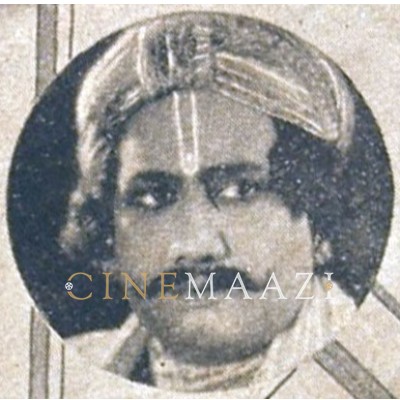Ajay Bhattacharya

Subscribe to read full article
This section is for paid subscribers only. Our subscription is only $37/- for one full year.
You get unlimited access to all paid section and features on the website with this subscription.
Not ready for a full subscription?
You can access this article for $2 , and have it saved to your account for one year.
- Born: 1906 (Shaymgram, Kumilla)
- Died: 1943
- Primary Cinema: Bengali
One of the most successful lyricists of bengali cinema of the 30s and 40s, Ajoy Bhattacharya's songs were the driving force behind the box office viability of many a classic film.
Born in 1906 in Shyamgram in present day Bangladesh, Ajay/Ajoy Bhattacharya pursued his studies in Bongobasi College, Victoria College and later in Calcutta University. In Kumilla, he was involved in theatre, both as a playwright and actor. While he was a student he came under the influence of Kazi Nazru Islam. Thus developing his interest in poetry, soon his poem 'Ulka' was published in Dhoomketu magazine. After finishing his studies, he taught in Victoria College and later in Tirthapati Institute in Kolkata.
His film debut came in Dhiren Ganguly's Bidrohi (1935), in which he was co-lyricist with Sailen Roy. He also wrote the script and lyrics for a short film called Sudurer Priya (1935) which had been directed by S D Burman. He went on to pen songs for hits like Grihadaha (1936), Mukti (1937), Jiban Maran (1939), Adhikar (1938), Sapurey (1939), Rajat Jayanti (1939), Doctor (1940), Shapmukti (1940), Raj Nartaki (1941), Milan (1942), Chhadmabeshi (1944) and many more. Some of his memorable songs were Pakhi aaj kon kotha koy, Ei peyechi anal jala (Jiban Maran), Dukkhe jader Jiban gora (Adhikar), Ami bon bulbul (Doctor), Banglar bodhu buke tar modhu (Shapmukti), Bondor charo jatri ra shob (Chhadmabeshi) among others.
He also picked up the director's baton for Ashok (1942) and Chhadmabeshi. Writer of many volumes of poetry, novels, stories and translations, he left his mark in the sphere of literature as well.
Ajay Bhattacharya passed away at a young age in 1943. Even in this short span he left behind an influential and memorable body of work.








.jpg)



